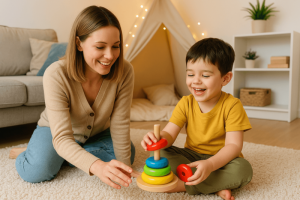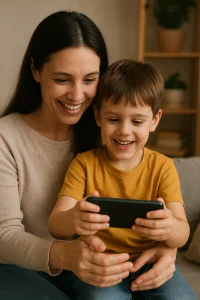Cultivating Resilience: Overcoming Relationship Setbacks
By Prapoorna M
Last Updated: February 28, 2024
Have you ever felt like a ship trying to navigate through the stormy seas of a relationship? If so, you’re not alone. Relationships, much like the ocean, can be unpredictable and challenging, often testing our emotional strength and resilience. But what exactly does it mean to be resilient, especially in the context of relationships?
Resilience, in its simplest form, is our ability to bounce back from setbacks and hardships. In the realm of relationships, it’s about overcoming heartbreak, managing emotional turmoil, and emerging stronger and more self-aware than before. It’s not just about surviving a breakup or a rough patch; it’s about thriving and growing in the face of relationship challenges.
Now, think about your own experiences. Remember a time when a relationship didn’t go as planned. How did you feel? Lost? Confused? Or perhaps you found a hidden strength within you that you didn’t know existed? This is resilience in action – the art of navigating through relationship setbacks, learning from them, and moving forward.
Book Relationship Counselling now.
Understanding Resilience in Relationships
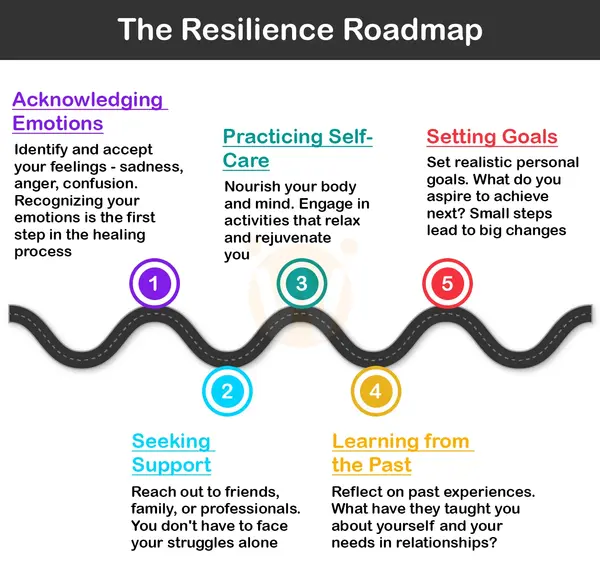
In the journey of love and relationships, resilience acts as our emotional compass, guiding us through the rough waters of heartache and disappointment. But what exactly is resilience in the context of relationships, and why is it so crucial?
Resilience, in its essence, is our ability to adapt and recover from relationship setbacks. It’s the inner strength that helps us navigate through the pain of a breakup, the disillusionment of unmet expectations, or the challenges of interpersonal conflict. Far from being a mere buzzword, resilience in relationships is about harnessing your emotional intelligence to manage heartache and transform it into a catalyst for personal growth and stronger future connections.
Contrary to popular belief, resilience isn’t a trait that only a few lucky ones are born with. It’s not a magical quality that some possess and others don’t. Instead, think of resilience as a muscle that everyone has the capacity to develop and strengthen. Just like building physical strength, cultivating emotional resilience involves practice, patience, and perseverance. It’s about learning to manage heartache, not just enduring it.
Also Read: Prioritizing Mental health: Breaking the chains of Stigma
The Importance of a Support Network
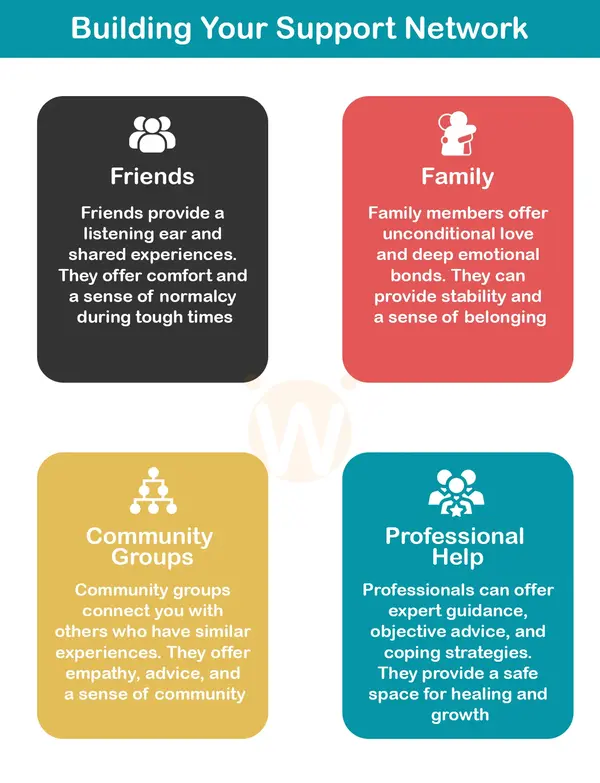
An integral part of building resilience in relationships is the presence of a supportive network. This isn’t just about having people around you; it’s about nurturing connections that offer empathy, understanding, and encouragement.
Imagine your support network as a safety net that catches you when you fall. It comprises friends who listen without judgment, family members who offer a shoulder to lean on, and community groups where you can share and learn from others’ experiences. These relationships provide a space for healing and reflection, helping you to process your emotions and gain insights that are crucial for moving forward.
So, how can you strengthen these vital connections? Start by reaching out. Sometimes, just sharing your story can open the doors to deeper, more meaningful interactions. Participate in community activities, join support groups, or even engage in online forums that focus on personal growth and emotional well-being. Remember, every step you take towards building a supportive network is a step towards cultivating resilience.
In the realm of love and relationships, as with all things in life, resilience is your unwavering ally. It’s about finding strength in vulnerability, learning from disappointment, and emerging from challenges with a renewed sense of self and purpose.
Discover more about building great work relationships and their impact on your overall well-being.
Embracing Self-Care and Emotional Wellness
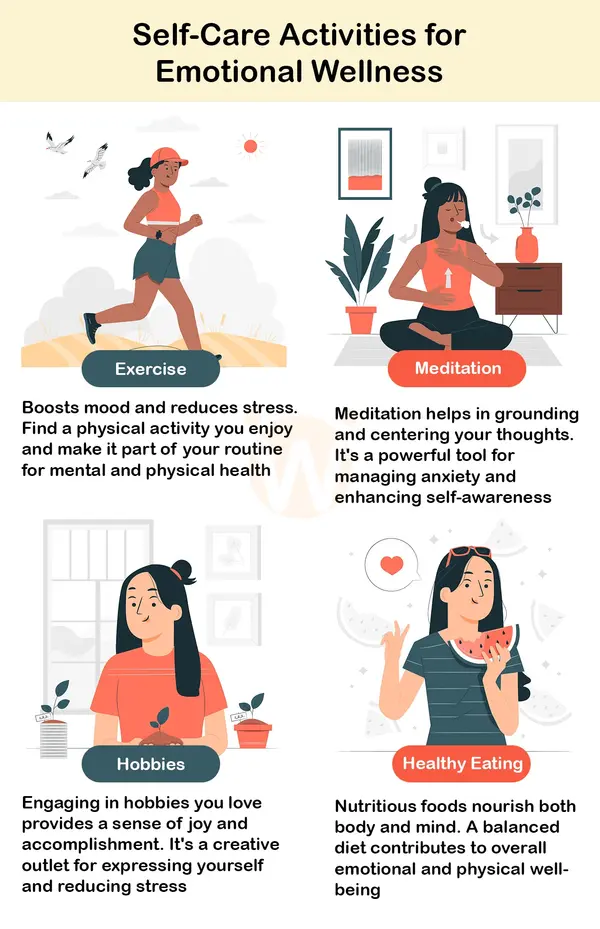
In the pursuit of cultivating resilience, especially after relationship setbacks, self-care and emotional wellness play pivotal roles. This isn’t just about indulging in occasional pampering or treats; it’s about consistently nurturing your mind, body, and spirit.
Simple, Practical Tips for Maintaining Emotional Health
- Prioritize Physical Well-being: Regular exercise, be it a brisk walk in the park, a yoga session, or a workout at the gym, isn’t just good for your body; it’s a powerful antidote to stress, anxiety, and depression. Remember, a healthy body fosters a healthy mind.
- Find Solace in Hobbies: Engaging in hobbies you love is not just a way to pass time; it’s a form of self-expression and a means to reconnect with yourself. Whether it’s painting, gardening, cooking, or writing, hobbies can provide a sense of accomplishment and joy.
- Mindfulness and Meditation: Practices like mindfulness and meditation can be incredibly beneficial in managing emotional turmoil. They help ground you in the present moment, providing a break from dwelling on past relationship issues or worrying about the future.
- Adequate Rest: Never underestimate the power of a good night’s sleep. Quality sleep is essential for emotional and physical health. Establish a soothing bedtime routine to help you wind down and ensure a restful sleep.
- Nutrition Matters: A balanced diet nourishes your body, impacts your mood, and affects your energy levels. Incorporate a variety of nutrient-rich foods in your diet to keep your body and mind in top condition.
Learn how food affects your mood and stress and the role of a healthy diet in emotional wellness.
Learning from Past Relationship Experiences
Every relationship, regardless of its outcome, offers invaluable lessons. Reflecting on past relationships isn’t about dwelling on what went wrong; it’s about gleaning insights that can guide your future interactions and emotional responses.
Deriving Positive Lessons from Previous Relationships
Identify Growth Opportunities: Look back at your past relationships and ask yourself: What did I learn? How have I grown? This reflection can transform feelings of regret into opportunities for personal development.
Acknowledge Your Strengths: Recognize the strengths you displayed in past relationships. Perhaps you showed great empathy, communication skills, or patience. These are qualities you can carry forward into future relationships.
Understand Your Needs: Understanding what you truly need from a relationship is crucial. Reflect on your past experiences to better comprehend your emotional needs, helping you make more informed choices in your future relationships.
Let Go of Negativity: Holding onto bitterness or regret only hinders your emotional growth. Learning to forgive (not necessarily forget) is a crucial step in moving forward.
Explore our resources on relationship counselling for deeper insights into learning from past relationships.
Developing Communication and Problem-Solving Skills
In the landscape of relationships, effective communication and problem-solving skills are like the compass and map that guide you through the rough terrains of misunderstandings and conflicts. These skills are vital in cultivating resilience and ensuring that your relationships, both present and future, are healthy and fulfilling.
Enhancing Communication Skills
Practice Active Listening: This involves truly hearing what your partner is saying, without formulating your response while they are still speaking. It shows respect and openness to their perspective.
Express Yourself Clearly: Be clear about your feelings and needs without assuming your partner knows what you are thinking. Use “I” statements to express your emotions without blaming or accusing.
Develop Empathy: Try to understand things from your partner’s point of view. This doesn’t mean you have to agree, but acknowledging their feelings strengthens the bond.
Manage Conflicts Constructively: Disagreements are normal, but it’s how you handle them that counts. Approach conflicts with a problem-solving attitude, focusing on the issue rather than attacking each other.
Seek Help if Needed: Sometimes, having a mediator or counselor can help improve communication, especially when you feel stuck. Wellness Hub offers resources and guidance for couples seeking to enhance their communication skills.
Improving Problem-Solving Skills
Identify the Problem: Clearly define what the issue is. Avoid generalizing the problem with statements like “You always…” or “You never…”.
Brainstorm Solutions Together: This promotes teamwork and ensures that both partners have a say in the resolution.
Try to Compromise: Find a middle ground where both partners feel their needs are met.
Implement and Review: After agreeing on a solution, put it into action. Review its effectiveness after a while and be open to making adjustments.
Communication Skills for Resilient Relationships
| Skill | Description | Example Scenario |
|---|---|---|
| Active Listening | Involves fully concentrating, understanding, and responding to the speaker. | Your partner is upset about their workday. Instead of offering advice or sharing your own story, you focus on understanding their feelings and perspectives, nodding and asking clarifying questions. |
| Clear Expression | Communicating your thoughts, feelings, and needs openly and honestly. | You feel overwhelmed with household chores. Instead of being resentful, you clearly express your need for help and suggest dividing the tasks. |
| Empathy | The ability to understand and share the feelings of another. | Your partner is anxious about an upcoming event. You acknowledge their feelings and offer support, saying, “It’s understandable to feel anxious about this, how can I help?” |
| Constructive Conflict Management | Handling disagreements in a way that promotes understanding and resolution. | During a disagreement about finances, instead of blaming each other, you both discuss your concerns and work towards a mutually agreeable budget plan. |
Improve communication in various aspects of life with our guide on how to build and maintain positive workplace relationships.
Setting Goals and Finding Purpose
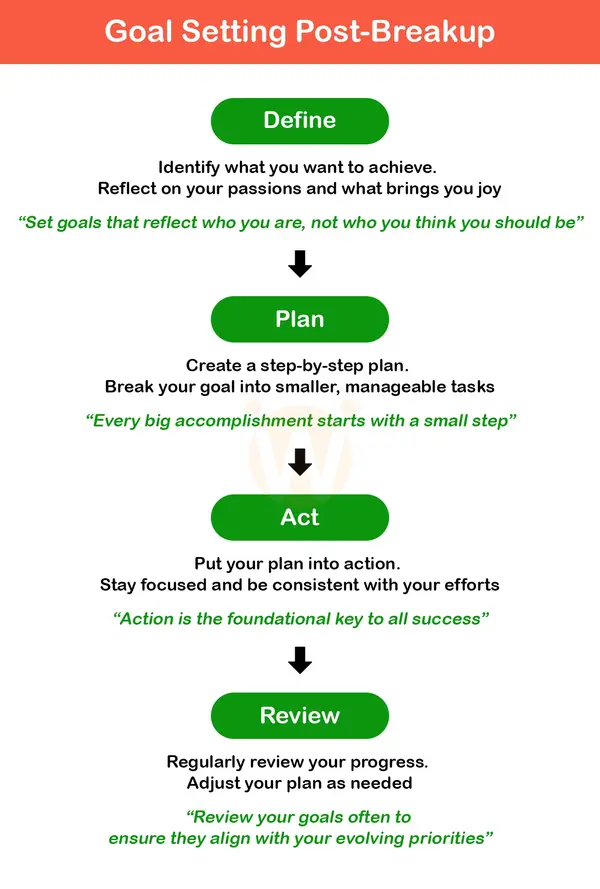
Post-breakup, it can feel like you’ve lost a part of your identity along with the relationship. This is where setting personal goals and finding a new sense of purpose play a crucial role in building resilience.
Setting Realistic Personal Goals
Start Small: Set achievable goals that motivate you. It could be as simple as reading a book a week, learning a new skill, or focusing on your physical health.
Align Goals with Your Values: Make sure your goals resonate with your personal values. This ensures that you are moving in a direction that is truly meaningful to you.
Write Your Goals Down: Writing down your goals makes them more tangible and gives you a clear roadmap to follow.
Celebrate Small Wins: Every step you take towards achieving your goals is a victory. Celebrate these moments as they contribute to your overall growth and happiness.
Finding Purpose
Explore New Interests: Post-breakup is a great time to explore new activities and interests. This can lead to a renewed sense of purpose and excitement.
Volunteer: Giving back to the community can provide a sense of purpose and satisfaction.
Reflect on Your Desires: Take time to think about what you truly want in life. This reflection can guide you towards a path that feels fulfilling and purposeful.
Incorporating these strategies into your life not only helps in overcoming relationship setbacks but also empowers you to build a life filled with purpose, happiness, and resilience.
Also Read: Action Planning to Action Taking
Maintaining Optimism and Hope
In the aftermath of relationship setbacks, it’s natural to feel a sense of pessimism or loss of hope. However, maintaining an optimistic outlook is a crucial aspect of cultivating resilience and moving forward. Optimism isn’t about ignoring the reality of your situation; it’s about maintaining a hopeful and positive attitude towards the future despite the challenges.
Techniques for Nurturing a Positive Outlook
Practice Gratitude: Focus on the good in your life. Keeping a gratitude journal where you list things you are thankful for each day can shift your focus from what you’ve lost to what you still have.
Set Realistic Expectations: Be hopeful about the future, but stay realistic. Not every day will be good, but there are good things in every day.
Surround Yourself with Positive Influences: Seek out friends, family members, and activities that uplift you and reinforce positive thinking.
Visualize a Positive Future: Spend time imagining a happy, fulfilling future. This visualization can act as a beacon of hope, guiding you through tough times.
Stay Active: Engaging in physical activities can boost your mood and outlook. Whether it’s a daily walk or a yoga session, physical activity releases endorphins, which are natural mood lifters.
Optimism and Hope Techniques
| Technique | Description | Benefit |
|---|---|---|
| Practicing Gratitude | Regularly acknowledging and appreciating the good in your life. | Fosters a positive mindset and reduces negative emotions like envy and regret. |
| Visualizing Positive Future | Imagining a successful, happy future to create a sense of hope. | Enhances motivation and confidence to pursue goals, and helps in coping with stress. |
| Staying Active | Engaging in physical activities and exercise. | Releases endorphins, improves mood, and reduces symptoms of depression and anxiety. |
| Mindful Reflection | Spending time in contemplation or meditation to stay grounded in the present. | Reduces stress and anxiety, improves emotional flexibility and resilience. |
| Positive Affirmations | Using positive statements to challenge and overcome self-sabotaging and negative thoughts. | Increases self-esteem, encourages positive changes in behavior and attitude. |
| Nurturing Relationships | Investing time and effort in building and maintaining positive relationships. | Provides emotional support, reduces feelings of loneliness, and increases a sense of belonging. |
Taking Action: Steps Towards Recovery
Recovery from a relationship setback is a journey, and it begins with taking small but significant steps. Here is a step-by-step approach to start your healing process, complemented by resources from Wellness Hub.
Step-by-Step Approach to Recovery
Acknowledge Your Feelings: Recognize and accept your emotions as they are. It’s okay to feel sad, angry, or disappointed.
Seek Support: Talk to friends, family, or consider professional counseling. Wellness Hub offers articles and programs that can provide guidance and support.
Take Care of Yourself: Focus on self-care practices. This includes eating well, getting enough sleep, and engaging in activities that bring you joy.
Set Small Goals: Start with small, achievable goals to help you regain a sense of control and accomplishment.
Explore New Interests: Use this time as an opportunity to try new things or revisit old hobbies that you might have neglected.
Reflect and Learn: Consider what you can learn from the experience. What strengths have you discovered about yourself? What would you do differently in the future?
Plan for the Future: Gradually, start to make plans for the future. This can be as simple as planning a weekend getaway or starting a new project.
Remember, recovery and resilience-building are not linear processes. There will be ups and downs, but each step, no matter how small, is a move towards a stronger and more resilient you.
For more comprehensive support on recovery and mental health, visit our online counseling page.
Conclusion
As we reach the end of our journey through the complexities of cultivating resilience in the wake of relationship setbacks, let’s take a moment to reflect on the key points we’ve explored together. Remember, resilience is not about avoiding the pain or difficulties that come with relationships, but about developing the strength and wisdom to navigate through them.
We’ve discussed the importance of understanding that resilience is a skill that can be learned and developed, not an innate trait possessed by only a few. We’ve highlighted the critical role of a supportive network and the invaluable practice of self-care and emotional Wellness Hub. The development of effective communication and problem-solving skills has been emphasized as a cornerstone of resilient relationships. Setting realistic personal goals and finding a new sense of purpose post-breakup can be transformative in your journey of recovery.
Maintaining optimism and hope, despite the challenges, is not just a lofty ideal; it’s a practical approach to rebuilding your emotional world. And finally, the step-by-step actions towards recovery, including acknowledging your feelings, seeking support, and gradually planning for the future, are essential steps in your path towards healing.
Continue exploring ways to enhance your life with our articles on overcoming test anxiety and building emotional connection with children.”
Frequently Asked Questions:
1. What is resilience in the context of relationships?
Resilience in relationships refers to the ability to recover and grow stronger after experiencing setbacks, challenges, or heartbreaks. It involves emotional strength, adaptability, and learning from past experiences.
2. Can anyone learn to be resilient after a relationship setback?
Absolutely. Resilience is not an innate trait but a skill that can be developed over time. With the right strategies and support, anyone can learn to bounce back from relationship challenges.
3. How important is a support network in cultivating resilience?
A strong support network is crucial for resilience. Having friends, family, or community groups who provide understanding and support can significantly aid in overcoming relationship setbacks.
4. What are some effective self-care practices for emotional resilience?
Effective self-care practices include regular physical exercise, engaging in hobbies, practicing mindfulness and meditation, ensuring adequate sleep, and maintaining a balanced diet.
5. How can I improve my communication skills to enhance relationship resilience?
Improving communication skills involves practicing active listening, expressing yourself clearly, developing empathy, and handling conflicts constructively.
6. What role does setting goals play in overcoming relationship setbacks?
Setting personal goals post-breakup helps in finding direction and purpose. Goals aligned with personal values can be particularly empowering and aid in resilience.
7. How can I maintain optimism and hope after a relationship ends?
Maintaining optimism involves practicing gratitude, setting realistic expectations, surrounding yourself with positive influences, and visualizing a positive future.
8. What steps should I take towards recovery after a relationship setback?
Steps towards recovery include acknowledging your feelings, seeking support, taking care of yourself, setting small goals, exploring new interests, and planning for the future.
9. Where can I find more resources on building resilience after a relationship setback?
You can find a wealth of resources, including articles and support programs, on Wellness Hub, designed to assist you in your journey towards emotional resilience.
About the Author:
Prapoorna Mangalampalli
M.Sc., M.A., (Dual Masters in Psychology & English) – Counselor (6+ years of experience)
Prapoorna armed with a passionate dedication fueled by dual Master’s degrees in Psychology and English, Prapoorna sheds light on and elevates human experiences. Over 6+ years of experience fuel her insightful approach to counseling, offering profound empathy and guidance across diverse areas like online, marital, relationship, child, family, and career counseling.
At Wellness Hub, she thrives in a team environment that values innovation, compassion, and achieving results for their clients.
Connect with Prapoorna to learn how she can help you or your loved one find their voice and build a brighter future.
Book your Free Consultation Today
Parent/Caregiver Info:
Client’s Details:
* Error Message
